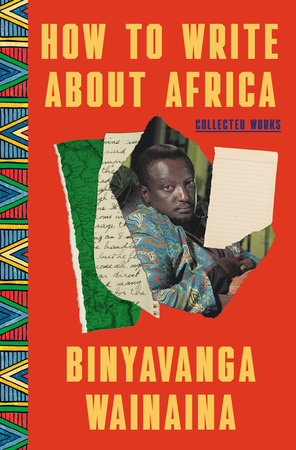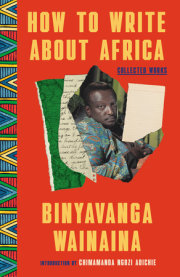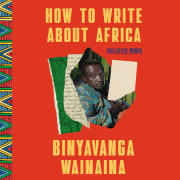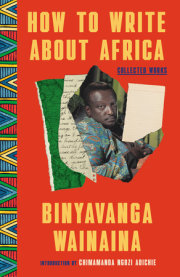1
Binguni!Two goldfish were arguing in their bowl: “If there is no God, who changes our water every week?”
Allotropy: (ə-ˈlä-trə-pē) n. The property of certain elements to exist in two or more distinct forms.
I
Dawn, December 27, 1999
Jango had often pictured his imagination as a helium-filled balloon, rather than one containing air. As he rose above the wreckage of the car, a whole-body feeling came over him. His life had ended, the string was cut, and his imagination was free to merge with reality. He felt immensely liberated—like he was flexing muscles that had not been used in a long time.
Oh, to stretch! His body felt loose-limbed and weightless, and his mind poised to soar. How could he have stayed in cramped earthliness for so long? How could he have forgotten this feeling? Had he not once danced with stars and had dalliances with gods?
Was he dreaming? Or was this part of some spectral past life? He felt no trauma of the type normally associated with violent death. Right now, he was rather piqued that he had missed out on the nonstop partying that was taking place all over the world. He hugged himself and found that his body seemed intact. He found it odd that he did not seem to feel the trepidation he would have expected if there was a possibility that he was destined for Pastor Vimba’s “LAKE OF FIYYRRE!,” which starred a leering Red Devil and promised “EEETERNALL DAMNATIONNN!” He giggled at the thought. “Tsk, tsk, Jango,” he said to himself. “You’re getting above yourself!”
Oddly enough, right now the thought of going to “Heaven” and spending eternity dressed in white robes, blissfully ensconced behind Pearly Gates while drinking nectar or listening to harps, was depressing. After spending most of his life in Johannesburg, and especially after the hedonism of the past few days, the “fires of hell” acquired a certain appeal.
There was another possible destination, though. His father’s mania—to become an esteemed ancestor, as Zulu tradition dictated. Yet he could not visualize himself tolerating eternity as an “Outraged Ancestor,” imposing droughts and plagues on disobedient descendants and anybody else who happened to be in the vicinity. Ancestor worship was a religion his father had tried to drum (quite often literally) into his head, and it was one he had discarded with relief. The concept of ancestors scrutinizing and guiding people’s lives had always inspired images of power-mad old voyeurs playing African roulette (giggle, giggle . . . whom shall we play with next—Rwanda?).
What if one descended from a long line of assholes?
He thought to himself that if he had a choice, he would not mind being dispatched to some sort of Spectral Cyberspace, if such a fanciful place could exist. Hmm, yes. Maybe he was on his way to a place where nobody would dictate to him how to live his life.
Oops.
Afterlife.
Pah! Banish the thought. There were probably harp-playing Censors lovingly denying souls/spirits/whatever their daily fix of Ambrosia if they did not conform.
As he floated with a sort of predetermined aimlessness, he delighted in his new rubber-bandy self, vaguely wondering why he seemed to have carried his body with him. Surely his real body was still getting intimate with the mangled metal of his car?
He looked down at the surrealistic African vista below him. It was as if, as the Earth relinquished its pull on him, he relinquished all the trauma that he expected to have felt after the accident—relinquished all the weighty emotions and burdensome responsibilities that did not endear themselves to his new weightless self.
Or maybe he was still stoned from the party.
Around and below him, the Earth had decided to stake its claim. A sudden gust of wind whipped itself up into a frenzy of anger, and lightning seared the ground. Thunder roared as if backing up the sky’s claim on him. Massive, engorged clouds lay low and gave birth to reluctant raindrops.
This drama had no physical effect on him. It seemed that he was in a dimension beyond Earth now. He could not remain unmoved by her mourning, though. As the wind wailed in fury, he mimicked it, roaring his farewell to her.
Meanwhile, fast asleep at her home in Diepkloof, Soweto, Mama Jango moaned as the cloud of unformed premonition that floated past her house darkened her pedestrian dreams. A shadow of loss chilled her briefly. Later she would wonder, and trusty Pastor Vimba would come up with a satisfactory supernatural explanation.
Meanwhile, exultation welled in Jango as he looked below him and saw the grand panorama of the storm-enlivened city. A powerful love for what had been his adopted home for twenty-seven years overwhelmed him. Wordsworth’s famous sonnet, a personal favorite, came to mind, and he laughed, stretching his arms wide and bellowing in exultation:
Earth has not anything to show more fair:
Dull would he be of soul who could pass by
A sight so F***ING touching in its majesty:
This City now doth, like a garment, wear . . .
Suddenly a force lifted the flat veld and highways as if they were merely a tablecloth and swallowed them. In no time everything earthly below him—the mine dumps, squatter camps, towers, domes, theaters, and temples of Johannesburg—disappeared the same way. Evaporated by something that seemed to have no substance or form.
Jango found himself surrounded by nothingness.
And all that mighty heart is lying still.
Stasis.
Silence so absolute, it screamed louder than anything he had ever experienced.
The sensation was terrifying. Utter nothingness surrounded him. There was no light, no darkness, nothing to feel or touch. Unearthly cold imprisoned his body. He began to shake and shudder, but soon even his shudders became sluggish and eventually ceased. He was immobile.
In the absolute silence, he could not tell whether he was still floating. An excruciating numbness began to spread all over his body. Soon his body lost all feeling. He lowered his eyes to see what was happening, and to his horror saw that something was eliminating it with a devastating silence.
As if it had never been there.
Finally, only the feeling that his mind was present remained, and it screamed into the nothingness to make itself heard. It tried all manner of activities to convince itself that it would be all right, but waves and waves of self-doubt assaulted it as it found nothing to compare or process. Nothing to perceive.
Not even an echo.
Shutdown began in some areas of his mind, and the rest reacted by exaggerating their most recent functions. “Oh, shit! This is it!” he thought frantically to himself. “This is how it ends.” Huge, terribly distorted images thrust themselves to the forefront of his consciousness as it tried to resist the terrible finality of its surroundings. Now all that remained were the screams of tortured metal, flashing lights, his crazed screams, and the smell of feces and smoke. His mind accepted these gratefully as evidence that there was existence, that he did exist. These scenes played themselves over and over as the shutdown continued undeterred, becoming more and more scrambled and indecipherable as more functions shut down.
Then there was just nothing.
Copyright © 2023 by Binyavanga Wainaina. All rights reserved. No part of this excerpt may be reproduced or reprinted without permission in writing from the publisher.









